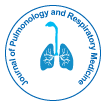Nuestro grupo organiza más de 3000 Series de conferencias Eventos cada año en EE. UU., Europa y América. Asia con el apoyo de 1.000 sociedades científicas más y publica más de 700 Acceso abierto Revistas que contienen más de 50.000 personalidades eminentes, científicos de renombre como miembros del consejo editorial.
Revistas de acceso abierto que ganan más lectores y citas
700 revistas y 15 000 000 de lectores Cada revista obtiene más de 25 000 lectores
Indexado en
- ICMJE
Enlaces útiles
Revistas de acceso abierto
Comparte esta página
Abstracto
La tormenta de citocinas va de la mano con la fiebre prolongada en el SARS COVID-19
Vijay Bakhtar*
Background: Clinical intervention in patients with SARS has demonstrated upregulation of cytokine production in patients with prolonged fever. Such an association between fever & cytokine storm is studied in the present research which is an hospital-based case-control study of COVID-19 patients. To the best of our knowledge, the present study is the first study on Indian population which highlights the link between prolonged fever, lymphocyte count and cytokine profile in patients with COVID-19 disease. Methods: We conducted a hospital-based case–control study of patients admitted for COVID-19 with prolonged fever and short duration of fever with a positive SARS-CoV-2 reverse transcriptase polymerase chain reaction (RTPCR). All the patients underwent investigations which includes chest X-ray (CXR), Complete Blood Count (CBC), Renal and liver panel, C- reactive protein (CRP), lactate dehydrogenase (LDH), Interleukin -6 (IL-6) and Ferritin, as a part of their COVID-19 protocol clinical laboratory findings at regular intervals till discharge. Conclusion: The study reported that prolonged fever i.e., fever > 7 days from beginning of illness was associated with increased risk of cytokine storm from COVID-19 than patients with short duration of fever. There was also a marked reduction in lymphocyte count with increased levels of inflammatory markers and fever which is again considered an indicator of poor prognosis. The study concludes that prolonged fever should be considered as one of the earliest markers for predisposing the patient to the cytokine storm. These early signs if diagnosed correctly right at the inception of complications the further progression of cytokine storm could be avoided, which can minimize the mortality and foster the chances of patient’s recovery from this deadly disease.
Revistas por tema
- Agricultura y acuicultura
- Alimentación y Nutrición
- Bioinformática y biología de sistemas
- Bioquímica
- Ciencia de los Materiales
- Ciencia general
- Ciencias Ambientales
- Ciencias Clínicas
- Ciencias farmacéuticas
- Ciencias Médicas
- Ciencias Sociales y Políticas
- Ciencias Veterinarias
- Enfermería y atención sanitaria
- Física
- Genética y biología molecular
- Geología y Ciencias de la Tierra
- Ingeniería
- Inmunología y Microbiología
- Química
Revistas clínicas y médicas
- Anestesiología
- Biología Molecular
- Cardiología
- Cirugía
- Cuidado de la salud
- Dermatología
- Diabetes y Endocrinología
- Enfermedades infecciosas
- Enfermería
- Gastroenterología
- Genética
- Inmunología
- Investigación clínica
- Medicamento
- Microbiología
- Neurología
- Odontología
- Oftalmología
- Oncología
- Pediatría
- Toxicología

 English
English  Chinese
Chinese  Russian
Russian  German
German  French
French  Japanese
Japanese  Portuguese
Portuguese  Hindi
Hindi